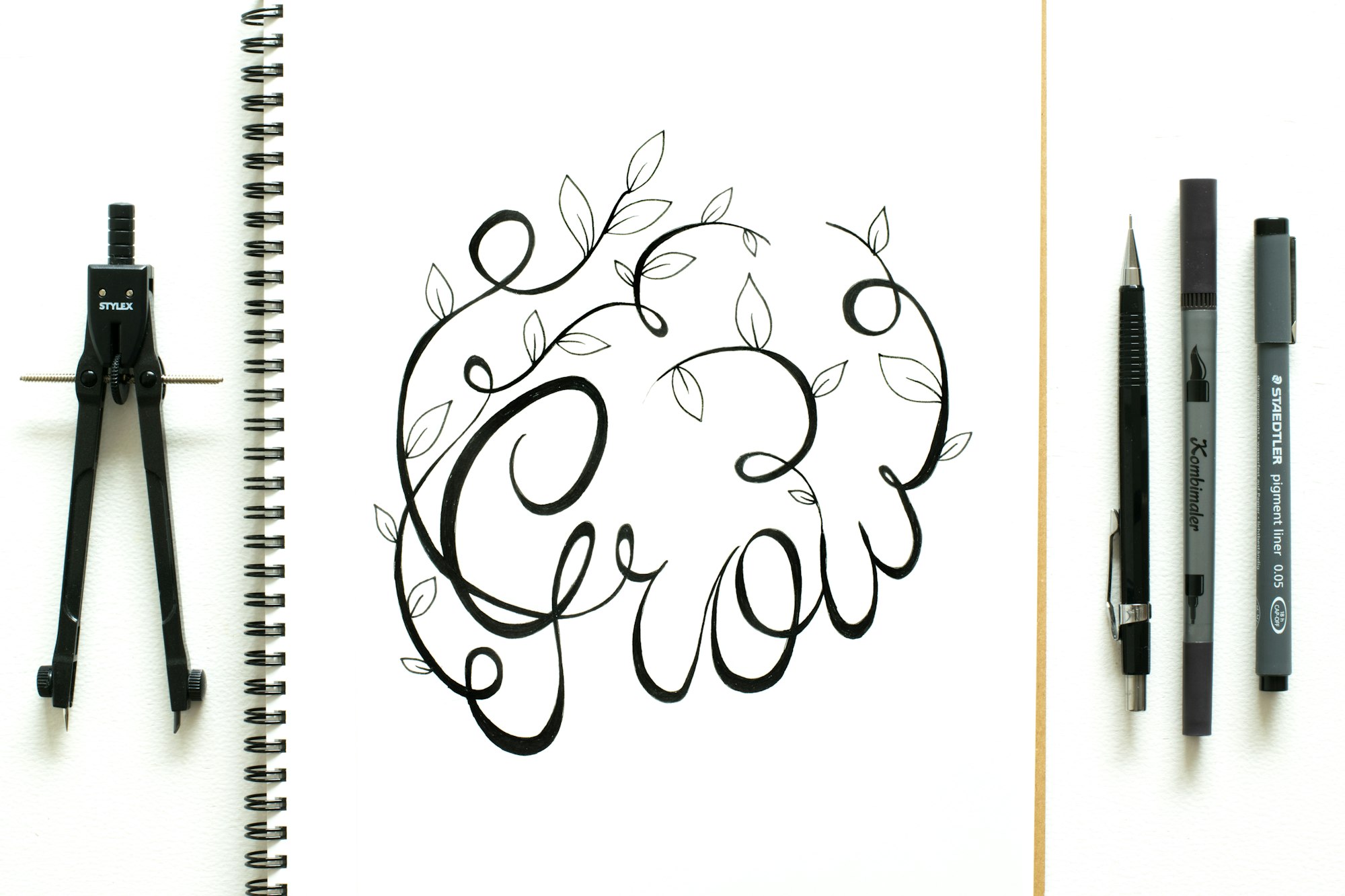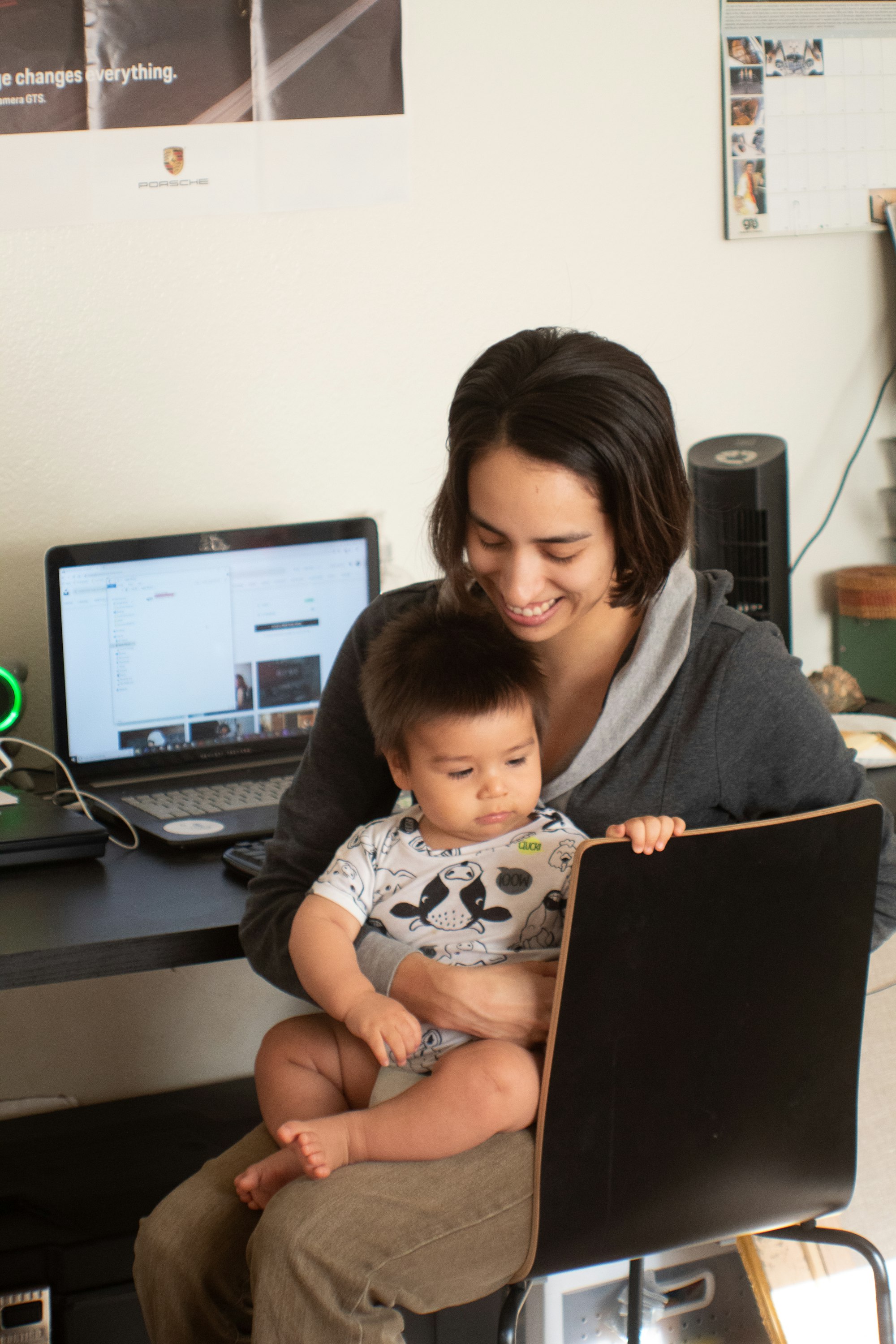Blog 52: From Doubt to Empowerment: Lessons in Personal Growth from Lauren's Journey

Embark on Lauren's NLP journey, from Doubt to Empowerment, harnessing the power of the mind for transformative change. Discover practical NLP (Neuro-Linguistic Programming) techniques for daily growth. Join her empowering quest for healing, self-discovery, and purposeful living.
Introduction

Embark on a transformative journey with Lauren, from Doubt to Empowerment, as she delves into NLP, hypnosis, and matrix therapies, revealing the profound influence of the mind on personal growth. Discover practical NLP applications for daily empowerment. Immerse yourself in inspiring tales of transformation, witnessing how Lauren serves herself and her community with passion and skill. Join her empowering quest for healing, self-discovery, and a purpose-driven life.

Lauren, tell me about yourself, your personality, and your passion. How do you serve yourself? Also, how do you serve the community?
Hey Mukti, thanks for having me on your amazing blog. My personality looks confident to the outside world, yet I have doubts and things I need to overcome regularly, just like everyone else. I feel honoured and humbled to have found my passion and contribution from a young age, helping others learn about the power of their minds and how we create our behaviours.
I look forward to sharing more here. How I serve myself is a great question—I love to do the things I love, knowing that the small things are the big things, such as reading, being outside, and spending time with loved ones. I love serving the community through my care and skills in helping others feel better about themselves.
8 Questions for Lauren
1. How did your journey into teaching NLP, hypnosis, and matrix therapies begin? What sparked your interest in these modalities?
I share in detail in my book how I overcame chronic pain by experiencing a hypnosis session and, afterwards, finally having an answer on how to heal that pain. I discovered I had a limiting belief about myself due to not knowing my biological father, and once I resolved that negative belief, I never had a stomach-ache again. I was very lucky, too, that my uncle had studied NLP, so I went and did his training after I graduated High School. I never looked back. I became one of the youngest NLP Trainers in the world at the age of 23, now 15 years ago.
2. What transformations have you witnessed in individuals who have undergone your training or therapy sessions?
There are many, and so I will name just a few. From anxiety to letting it go completely, living a life of trust, and working productively towards their life goals. From obesity to learning how his life values were misaligned and once realising how they were in conflict, believing that food equalled love to realising that food can equal great health, he became lean and healthy forevermore. Letting go of past hurts and limitations in relationships because they healed old wounds and forgave themselves wholly from self-sabotage to self-love. I am blessed to witness the human spirit overcome so much pain. I could never have imagined hearing all my stories, as people can go through so much in one lifetime. It's incredible and awe-inspiring to see how people can grow and heal to live their lives of contributions, regardless of anything, if they choose to.
3. Can you explain the principles behind NLP and how they can be applied daily to promote personal growth and development?
There is a model we love in Neuro-Linguistic Programming (NLP), which is a sophisticated set of personal development and communication tools. This model explains many of the principles even though there are many more, such as there is no failure in life, only feedback.
I love the NLP Communication Model because it shows the paradox of human beings in that we are such different and complex beings, yet we all work the same way. This model simplifies human behaviour whilst including and honouring the complexity of how unique and different we all are.
The NLP Communication Model see below:

The NLP Communication Model in the diagram above is a foundation for understanding the universal question of why we do what we do as human beings; instead of asking why, we focus on how in NLP. Understanding how we create our behaviours answers the question of why, too, and how we can have a process to work with as we can break it down into the steps we take to produce specific outcomes – our behaviours. This model beautifully describes how we do what we do as human beings by outlining the steps our thoughts and actions take to get the results we have in life.
We start at the model's top right-hand side by receiving an external event through our five senses. Inside the head, you can see next, we distort, generalise and delete the external event, depending on our internal filters. Our filters include time, space, matter and energy (the environment we are in), our soul's blueprint (this is my addition to the model outside of NLP, which includes the idea we are born with information to work with – explained by our human design, astrological birth chart, our soul's chosen archetypes etc.) The language we speak and the words we use both to ourselves and others. Additionally, our decisions, memories & influences make up our experiences and what we make meaning from, personality types (called meta-programs), values, beliefs and attitudes. These filters determine how we process the external world and create perception and meaning.
Distorting, generalising, and deleting information is a quick, unconscious process we all need to do. We simply cannot cope with the unbelievable amount of information that is said to bombard our senses every second of our day. We are habitual beings because we are a product of our environment. How we filter all the information from outside of us informs how we respond and act according to our perceptions internally. We create our perceptions and meaning to events based entirely on the filtered information.
An analogy to understand this model is how we use filters for water purification. Just like we tap water into a jug that holds a filter, and once the water runs through it, we are left with cleaner water to pour into a glass for a drink, so are we left with specific results once we have filtered our external world? Our behaviours are the clean water.
Here is an example. Two people are watching the same movie, and one person laughs at a particular scene whilst the other person may be moved to cry in empathy for the character. Two people have different experiences and react to the movie because the information about this external event has gone through each of their filters, including their memories, values, beliefs, etc. In turn, they have created a different internal representation with unique meanings for the onscreen character is experiencing. One person may laugh because they have had the same problem as the character in the past but have solved it for themselves, or they can't relate to it. The other person may be crying because they are going through the same pain in their life while watching it.
More specifically, imagine the show is about a character who falls pregnant accidentally, and it's intended to be comical about questioning who the father is this was in the movie Bridget Jones's "The Edge of Reason"! Someone who hasn't experienced any trauma around fertility could find this movie funny. Yet someone else, like myself, having experienced significant pain in getting pregnant, would be experiencing this movie completely differently. Particularly if watching it while going through the journey of wanting to get pregnant and deeply struggling.
What are distortions?
Distortions are helpful for our imagination and goal setting to make our reality what we would like it to be. Distortion means changing the details of an event that is happening outside of us or how we think about an event inside our minds from how they are. Examples of distortions are all the ways we tell ourselves stories and different meanings to things that either serve us or don't. They are our criticisms, judgements, perceptions, and even excuses we come up with. A simple example is distorting a memory, such as thinking our friend wore a blue shirt yesterday when it was purple. It can also be when we mishear someone's communication by distorting it to fit our perception of what we think they said. We've all had times when we continue a conversation with someone, which becomes a misunderstanding because our perception has distorted what the other person meant versus the meaning we created.
What are generalisations?
Generalisations are helpful, so we do not need to relearn basic things repeatedly. An everyday example might be seeing every different chair we come across and generalising it to be a piece of furniture we sit on. They are the basis of stereotypes and assumptions that if one thing occurred as it once did, that same thing would always be that way. For instance, one could generalise the belief all relationships are hard work due to being hurt in the past by an ex-partner. This all-too-familiar generalisation affects how someone can perceive potential new partners and dismiss them altogether because of the filter of past hurtful memories. We can, of course, generalise in any area of our life, such as thinking all exercise is not pleasurable; for example, when a generalised belief stops the person from finding a type of exercise they love to do and can persist with.
In fact, all limiting beliefs have been formed from our generalisations. My limiting belief about not being good enough as a person was a generalisation from one experience of my biological father not being in my life. It is when we take a significant, emotional event and generalise it to apply to a greater context. For example, a child may not think they are good at catching a ball after a small number of disheartening experiences. They may generalise this to believe they are not good at sport. From experience with a ball generalised to not being good at all sports is now a self-limiting belief. Again, all limiting beliefs are generalisations. They stop us from seeing different options and possibilities.
What are deletions?
Deletions help process the most meaningful information in our conscious mind and then delete the rest, so our awareness is manageable. Deletions remove specific information from our awareness that is right there in front of us, in our environment. When people feel highly negative, they delete entirely all the positive things in their lives. A more trivial example would be when we have had glasses perched on our heads or are holding our keys and still wonder where they are as we look around for them.
Common deletions in everyday communication occur when a person has an entire internal representation of what they are talking about but only shares a small amount of detail with their words and expects the other person to fill in the detail accurately. An internal representation is when we play a movie of memory in our mind; we have a feeling and know precisely what we are talking about, yet we delete parts of what we think with the words we use to the other person. For example, using words like "we", "they", and "he" can be misunderstood easily because certain information is not specified as to who we are thinking about. Or when someone says, "Oh yes, the idea we had is such a great idea” and expects the other person to know what idea they were referring to from a conversation days ago. The communicator has deleted the information explaining what idea they are referring to simply because they can picture it all in their mind and need to remember when the other person is not simultaneously thinking of the same picture.
Communication is always key to recovering distortions, generalisations and deletions we all make daily.
All these filters (time/space/matter/energy, our soul blueprint, the language we think and speak in, decisions, memories, our influences on us, values, beliefs, meta programs, and attitudes) and then what we delete, distort, and generalise according to these filters, are unconscious. For example, we do not need a memory pop into our conscious awareness before the external event emotionally triggers us. Our body responds as a sensation like a fast heartbeat, a drop in our stomach, or a tightness in our chest, all before we are consciously aware of why. Since our body is where all our emotions, memories, and behaviours come from, we immediately start behaving from any unresolved emotional place inside our unconscious mind.
It is when we become aware of all our unconscious programming and understand:
● why do we feel the way we do,
● why do we have certain self-talk, and
● why do we behave the way we do,
that we can make a change if we want to. We can create our lives how we want to and live with intention, passion, growth, and meaningful contribution.
4. How do hypnosis and matrix therapies complement each other in facilitating inner healing and transformation?
Hypnosis and Matrix Therapies help us make changes at the unconscious mind level. Matrix Therapies, created by Pip McKay, has superseded any other modality I have ever come across in inner healing and transformation because it offers many processes where we can heal our inner past selves and our inner children and let go of parental programming, which we are all functioning from as human beings, no matter how we were parented. No other modality offers such a sophisticated understanding of how our emotions, thoughts, and behaviours are created by the concept that we all adopt, rebel, escape and compensate in different ways according to what we experienced and learnt in our childhood.

5. What are some common misconceptions people have about NLP, hypnosis, and matrix therapies, and how do you address them?
The biggest misconception people can have about these modalities is that they may be out of control somehow. If this were true, you would see me waving my magical wand towards many suffering people and magically having power over them to heal them. But this is not possible. The conscious mind is always aware of what is being said and why, and a great therapist like me will always speak about how these modalities are intended to create more and more choices in a person's life.
6. How do you tailor your teaching approach to accommodate individuals with varying levels of experience or understanding in these fields?
No matter how long or deep someone has gone into their personal development, we treat every person like they are ready to receive the information at the perfect time. Their unconscious mind will take the learning and information with what they need to accept and discern the rest. I have also been credited with always allowing people to feel comfortable and welcome to ask questions throughout the process and training. There are no silly questions. If the questions are not asked, they are just missed opportunities for clarity and future application.
7. What advice would you give someone considering pursuing certification or training in NLP, hypnosis, or matrix therapies?
Most people who attend certification training in these modalities attend for personal transformation, learning, and growth. They then realise, because of how the training is delivered, in terms of seeing a demonstration of each technique, experiencing it for themselves, and then facilitating each process with someone else, that they love facilitating change in others and pursuing their newfound interest in helping others. If you are called to help others in this way, absolutely follow your heart because it's such a rewarding and profound role to guide others in this way.
8. Something I wish people knew about me?
I wish people knew how sensitive I am and how much I take things to heart. I wish they knew that I am an ordinary person who overcomes many limitations, pain, and negativity and that I continuously find ways to self-reflect and support myself to grow and act regardless of anything that is going on. I share this because I want people to know that if I can do it, they can, too!
If people are interested in following you, please provide your details:
from there, you can find information about my private therapy and training company, Intuitive Heart Training Academy.
You can receive free hypnosis tracks for stress relief, empowerment and more by going to the above link!
Top Quotes

Lauren likes these quotes:
Don't die with the music still in you" Wayne Dyer
“Our deepest fear is not that we are inadequate. Our deepest fear is that we are powerful beyond measure. It is our light, not our darkness that most frightens us. We ask ourselves, 'Who am I to be brilliant, gorgeous, talented, fabulous?' Actually, who are you not to be? You are a child of God. Your playing small does not serve the world. There is nothing enlightened about shrinking so that other people won't feel insecure around you. We are all meant to shine, as children do." Marianne Williamson
Below are the quotes I like on this topic:
“NLP is an attitude and a methodology, not the trail of techniques it leaves behind.” Richard Bandler
“It is not the mountain we conquer but ourselves. Edmund Hillary
“The mind moves in the direction of our currently dominating thought.” Earl Nightingale
“We are what we repeatedly do. Excellence, then, is not an act, but a habit.” Aristotle
Questions and Reflections

1. Question: How might Lauren's journey through NLP, hypnosis, and matrix therapies inspire individuals to embark on self-discovery and personal growth?
Reflection: Lauren's narrative of triumphing over obstacles and discovering her passion underscores the transformative influence of persistence and self-awareness. It prompts us to contemplate our journeys and their potential for growth.
2. Question: Can you recall any personal transformations like those in Lauren's anecdotes?
Reflection: Reflecting on the changes witnessed in Lauren's experiences, consider moments of growth and empowerment in your own life or those around you. Acknowledging these transformations fosters gratitude and motivates further self-improvement.
3. Question: How might Lauren's insights into NLP principles and holistic therapies be practically applied to enhance personal growth and well-being daily?
Reflection: Explore Lauren's discussions on NLP and holistic therapies, contemplating how these concepts could be integrated into your daily routine to bolster self-awareness and overall well-being. Seek opportunities to implement these principles, fostering positive change and personal evolution.
Conclusion

In conclusion, Lauren's journey into NLP, hypnosis, and holistic therapies offers invaluable insights for those navigating personal growth paths. From doubt to empowerment, her story illuminates the transformative potential of self-discovery and resilience. By embracing the principles of NLP and holistic therapies, we can cultivate self-awareness and holistic well-being in our daily lives. Let Lauren's journey inspire us as we embark on our quests for empowerment and transformation.
Connect with me:
Are you ready to embark on a journey of personal growth, clarity, and empowerment? Dive into a 30-minute, life-changing call with me for AUD 50 - your gateway to success and wellbeing!
Remember, investing in yourself is the most significant investment you can make. Take this opportunity to go beyond your limits and embrace the extraordinary!
Join our community to share your experiences, insights, and questions. Together, let's cultivate a supportive space for growth and transformation.
Cheers to a vibrant, energised, and thriving you!
Thank you.
Let us activate your growth and celebrate together as you unlock your true potential!
Do not hesitate to contact me with any questions; I love interacting with the community.
Get ready to dive into the heartwarming world of Blog 53, dropping April 14th! Meet Nitasha, a strength and inspiration for mothers everywhere, making the bold leap back into the workforce after welcoming her 3rd child. Join her as she explores the rollercoaster ride of emotions and challenges this journey brings, sharing priceless advice and support for all the mums out there facing the same adventure. You don't want to miss this!

Transformative insights and actionable tips await to elevate your wellbeing! Keep the excitement alive for your upcoming wellness adventure!
Live your Life on Purpose!
With much Love
Mukti Santos

“All we are is the result of what we have thought. The mind is everything. What we think we become.” The Buddha
Journal Prompts
Grab a journal!
Member discussion